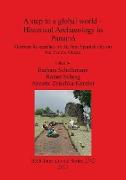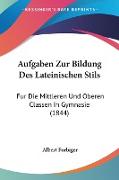A step to a global world - Historical Archaeology in Panamá
BücherAngebote / Angebote:
In this publication the results of an archaeological research project conducted by the Department of Medieval Archaeology of the University of Tübingen, Institute for Prehistory and Medieval Archaeology, under the leadership of Barbara Scholkmann during the years 2003 to 2009 in the ruins of Panamá la Vieja (Panama City, Rep. Panamá) have been published. The Spanish colonial town of Panamá la Vieja, was founded in 1519 and was the first city on the pacific coast. It was a centre of the Spanish colonial empire with vast strategic and economic importance until it was destroyed by English pirates in 1671 and at this place subsequently abandoned. Numerous ruins, especially of large buildings such as the cathedral, the abbey churches and some secular buildings, have been preserved until now without being disturbed by modern development. Thus, the ruin city represents an ideal field of research for archaeological investigations. Six campaign excavations were carried out in the city's former hospital San Juan de Dios as well as in a large building complex, which were used for the handling of goods. At the west end some sondages were conducted to get information about structures in the outlying district. The entire area of the city was prospected geomagneticallyand a topographic map was produced for a large part of the terrain. Several ruin-complexes were measured and examined by archaeologists specialized in architecture. The recovered find material was reviewed and subsequently catalogued and classified parallel to the excavation work. The entire stock of finds from older archaeological investigations was also documented in the context of a post-doc project. With the aid of statistic analyses and patterns of find distribution it was possible to research questions concerning social structure, functional differentiation and the area inner-structure of the city. The results from the hospital were evaluated and the different find groups of the material culture were presented in the context of several academic theses. In the process some of the manifold and very interesting aspects were thematised which the first Spanish town on the Atlantic seaboard, abandoned in the 17th century and today a UNESCO World Heritage Site, can offer to European historical archaeology.
Folgt in ca. 10 Arbeitstagen

